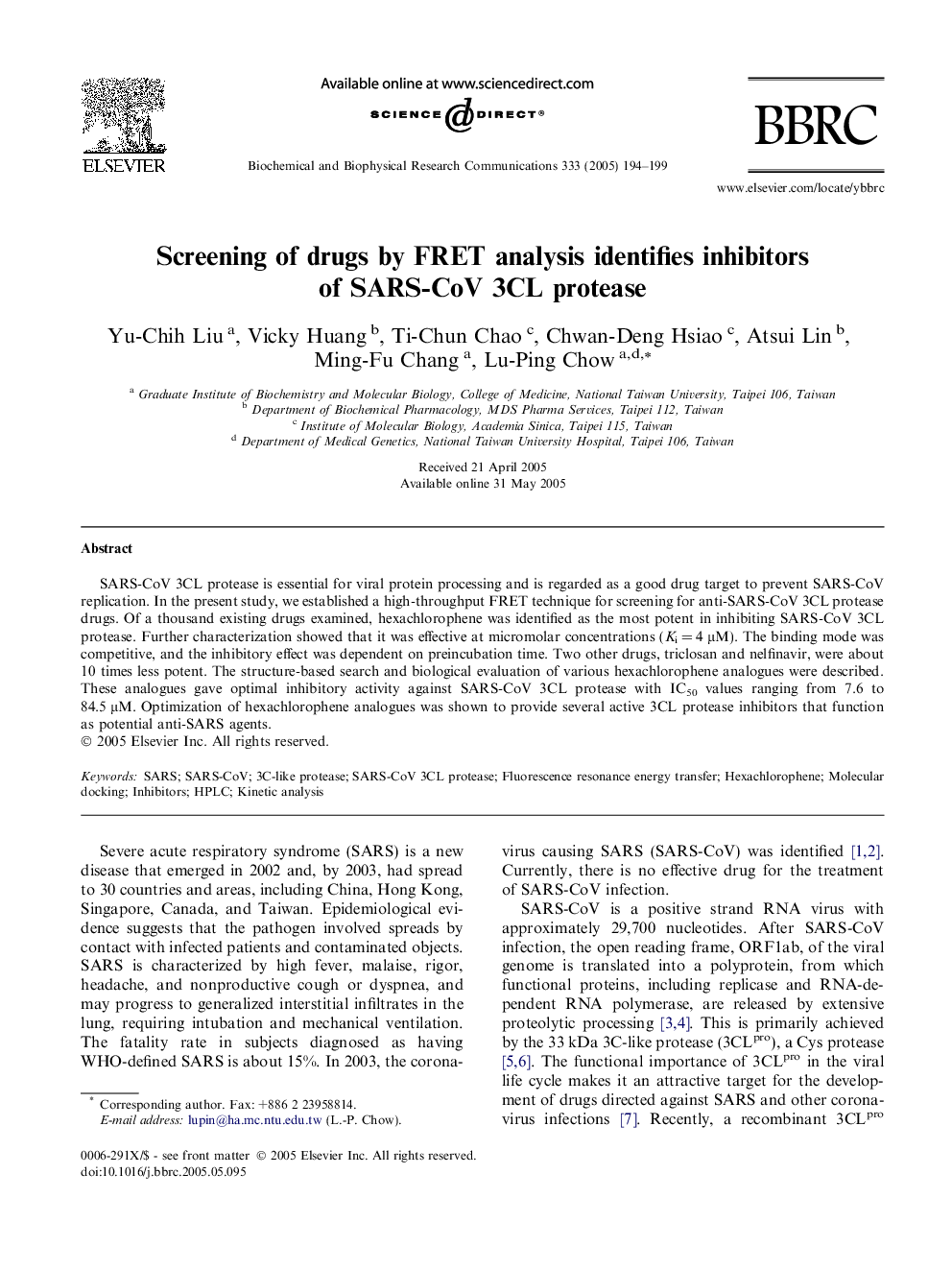| Article ID | Journal | Published Year | Pages | File Type |
|---|---|---|---|---|
| 10769694 | Biochemical and Biophysical Research Communications | 2005 | 6 Pages |
Abstract
SARS-CoV 3CL protease is essential for viral protein processing and is regarded as a good drug target to prevent SARS-CoV replication. In the present study, we established a high-throughput FRET technique for screening for anti-SARS-CoV 3CL protease drugs. Of a thousand existing drugs examined, hexachlorophene was identified as the most potent in inhibiting SARS-CoV 3CL protease. Further characterization showed that it was effective at micromolar concentrations (Ki = 4 μM). The binding mode was competitive, and the inhibitory effect was dependent on preincubation time. Two other drugs, triclosan and nelfinavir, were about 10 times less potent. The structure-based search and biological evaluation of various hexachlorophene analogues were described. These analogues gave optimal inhibitory activity against SARS-CoV 3CL protease with IC50 values ranging from 7.6 to 84.5 μM. Optimization of hexachlorophene analogues was shown to provide several active 3CL protease inhibitors that function as potential anti-SARS agents.
Keywords
Related Topics
Life Sciences
Biochemistry, Genetics and Molecular Biology
Biochemistry
Authors
Yu-Chih Liu, Vicky Huang, Ti-Chun Chao, Chwan-Deng Hsiao, Atsui Lin, Ming-Fu Chang, Lu-Ping Chow,
